By Aufa Fathya
Plastic pollution is a growing concern that deeply affects both our planet and our health.
As a medical student driven by community service, I’ve seen how this crisis hits home, especially in Indonesia, a nation of islands facing unique environmental challenges like those in Aceh. In mid-2024, during Universitas Gadjah Mada’s Student Community Service (KKN-PPM UGM), my team and I worked with the community of Pulau Breueh, Indonesia’s westernmost island.
What we found was both shocking and eye-opening. With no waste management systems or garbage boats, people had no option but to dump trash into the sea.
Ocean currents are depositing "international" plastic waste on their shores, worsening the situation. Seeing plastic bottles and wrappers from across the globe scattered along Pulau Breueh’s beautiful coastline was a wake-up call—this problem knows no borders.
Instead of standing by, we focused on empowering the youth to lead change. We worked with children, teaching them how to separate plastic from organic waste and showing them why this matters. Their initial discomfort at the sheer amount of waste in their surroundings turned into determination to do something about it.
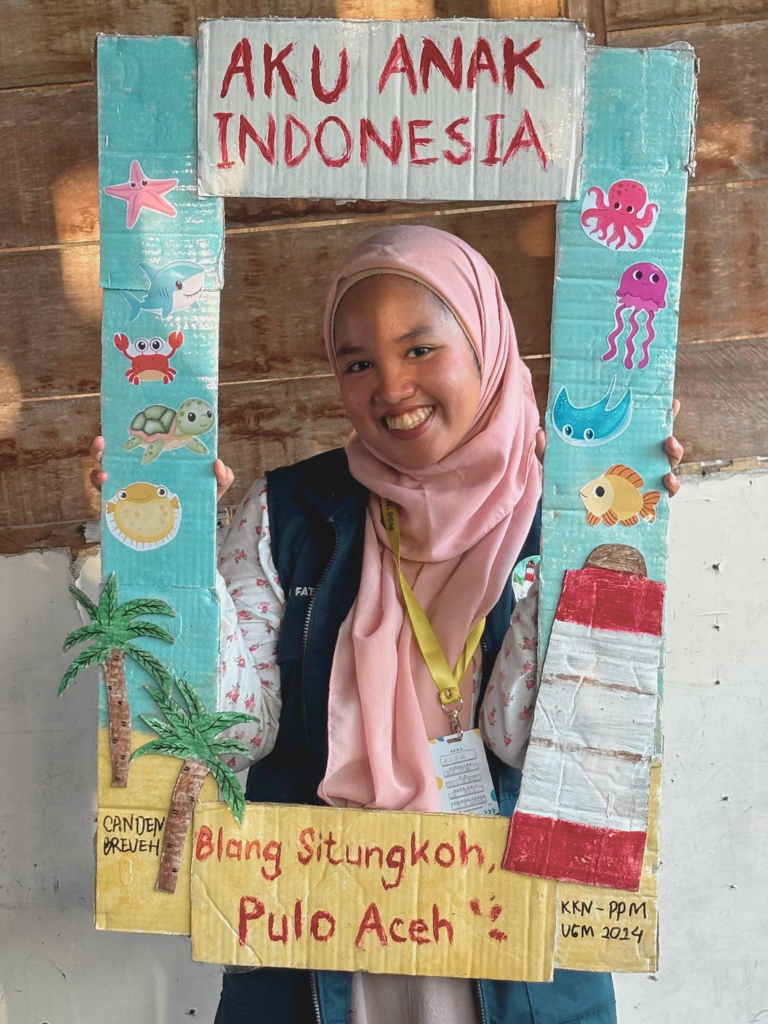
Aufa Fathya, 24 year-old, Indonesia
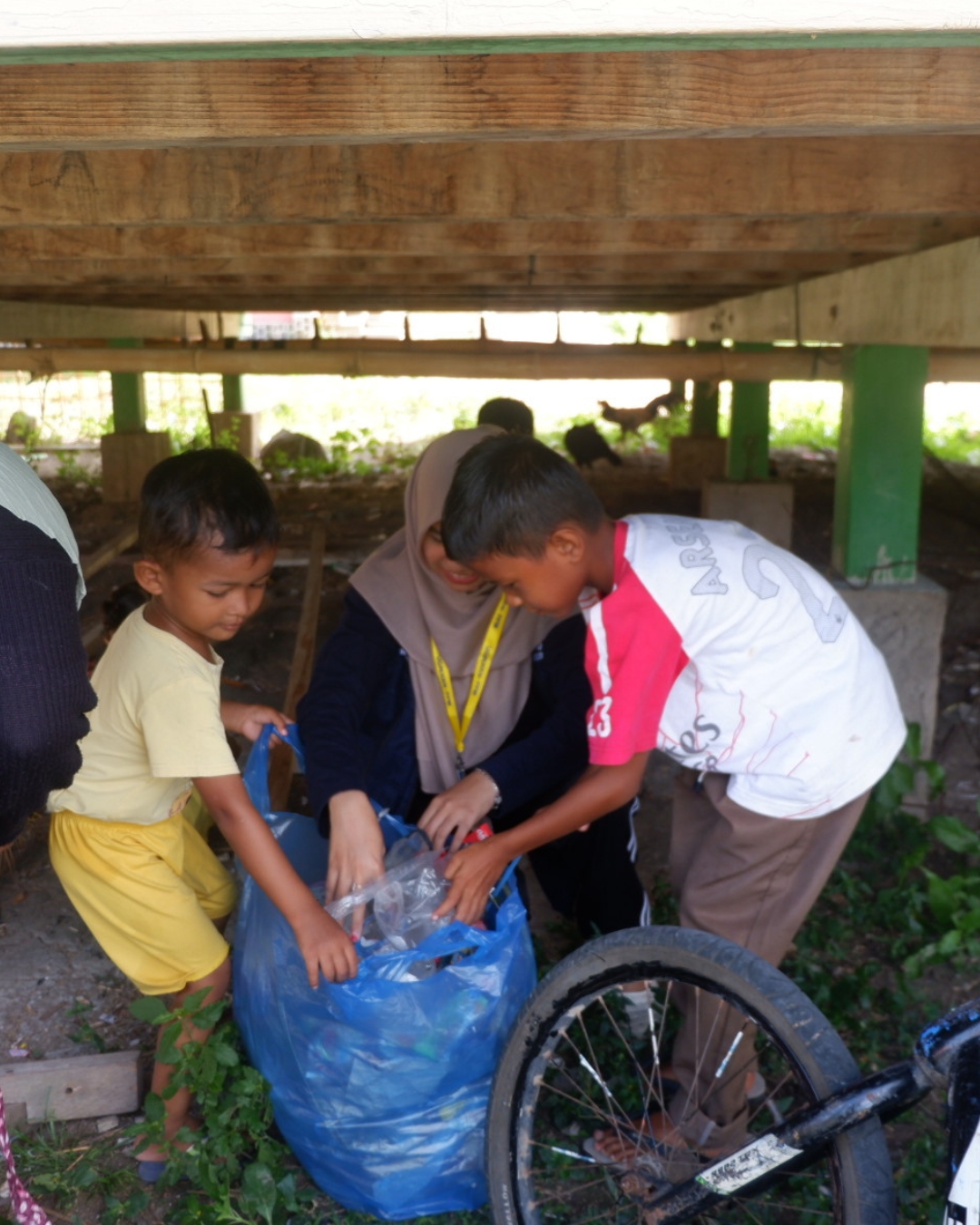
We also teamed up with them to make eco-bricks, transforming plastic waste into building materials. While not a perfect solution, it fostered awareness and a sense of responsibility among the next generation.
The impact of plastic waste goes beyond sight; it’s in the food chain. When fish—the primary protein source for Pulau Breueh—consume microplastics, they enter our diet, posing serious health risks.
This harsh reality underscores the urgency of addressing plastic pollution. The fight against plastic pollution is daunting, but seeing kids and teens step up as eco-warriors fills me with hope. With their energy and creativity, we can turn the tide for Pulau Breueh and beyond—toward a cleaner, healthier planet for all.
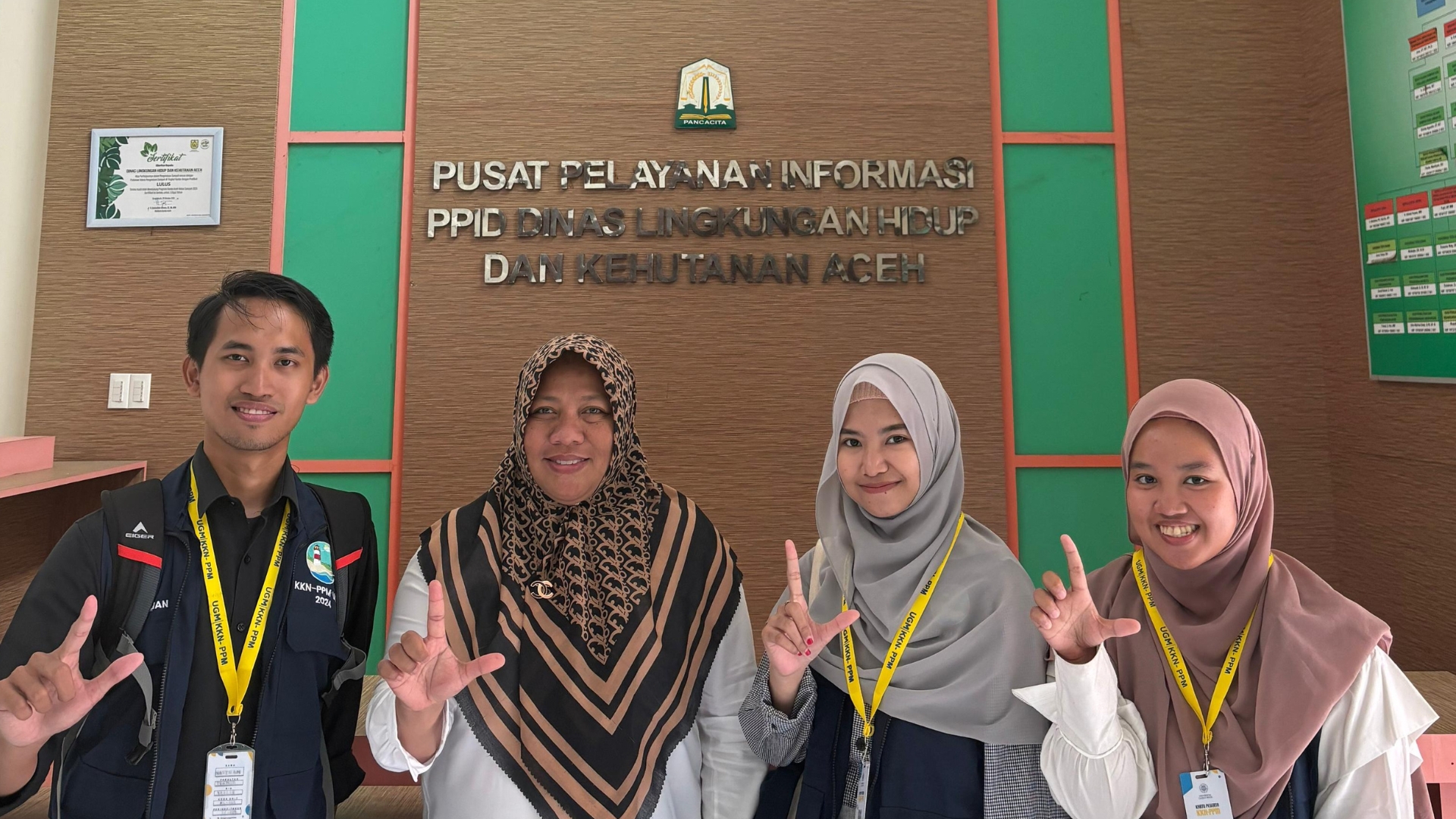
Aufa Fathya works with the local government In Indonesia to clean up plastic pollution in her community.
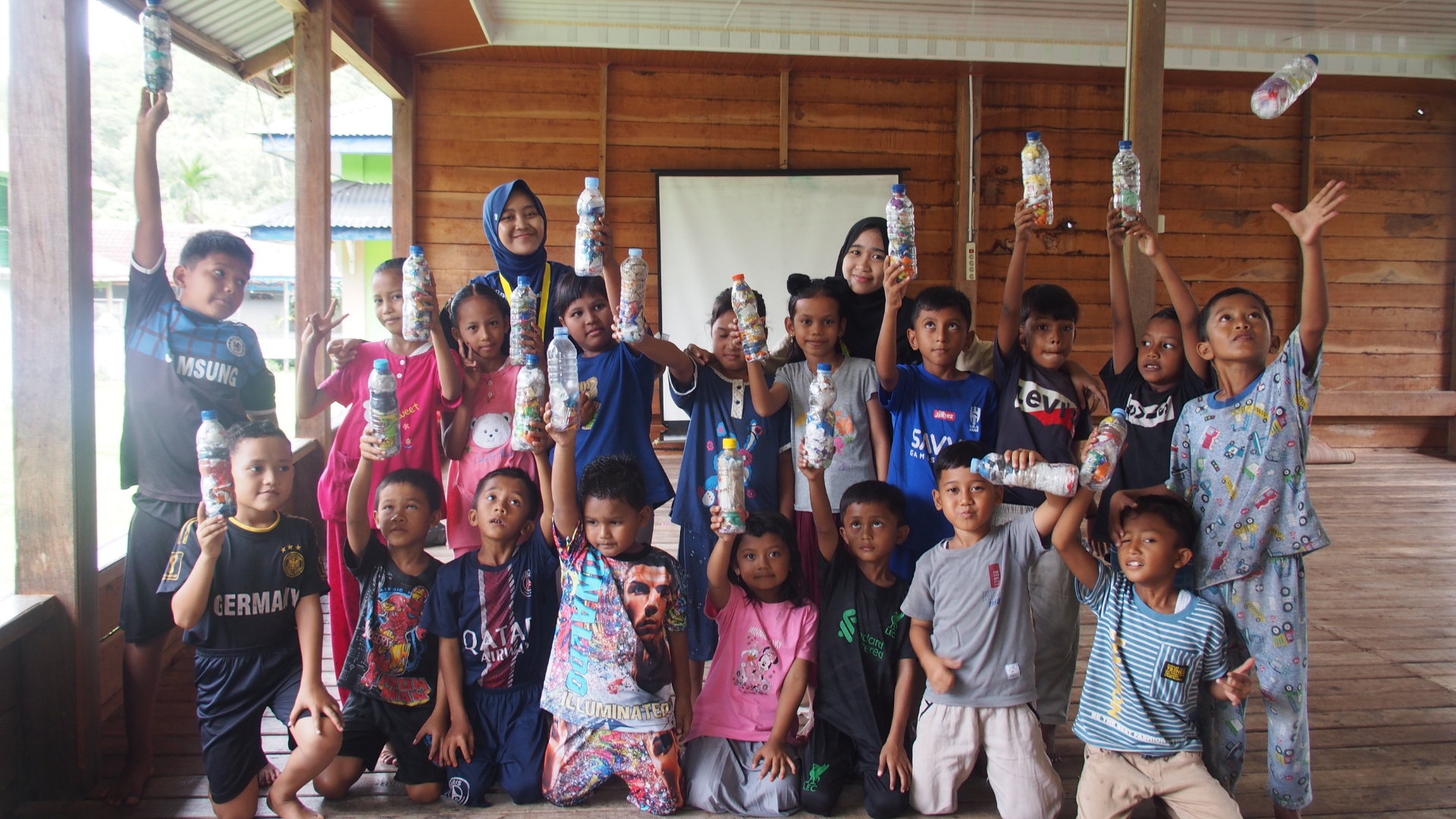
Aufa Fathya works with children to create plastic bricks for an eco-project.
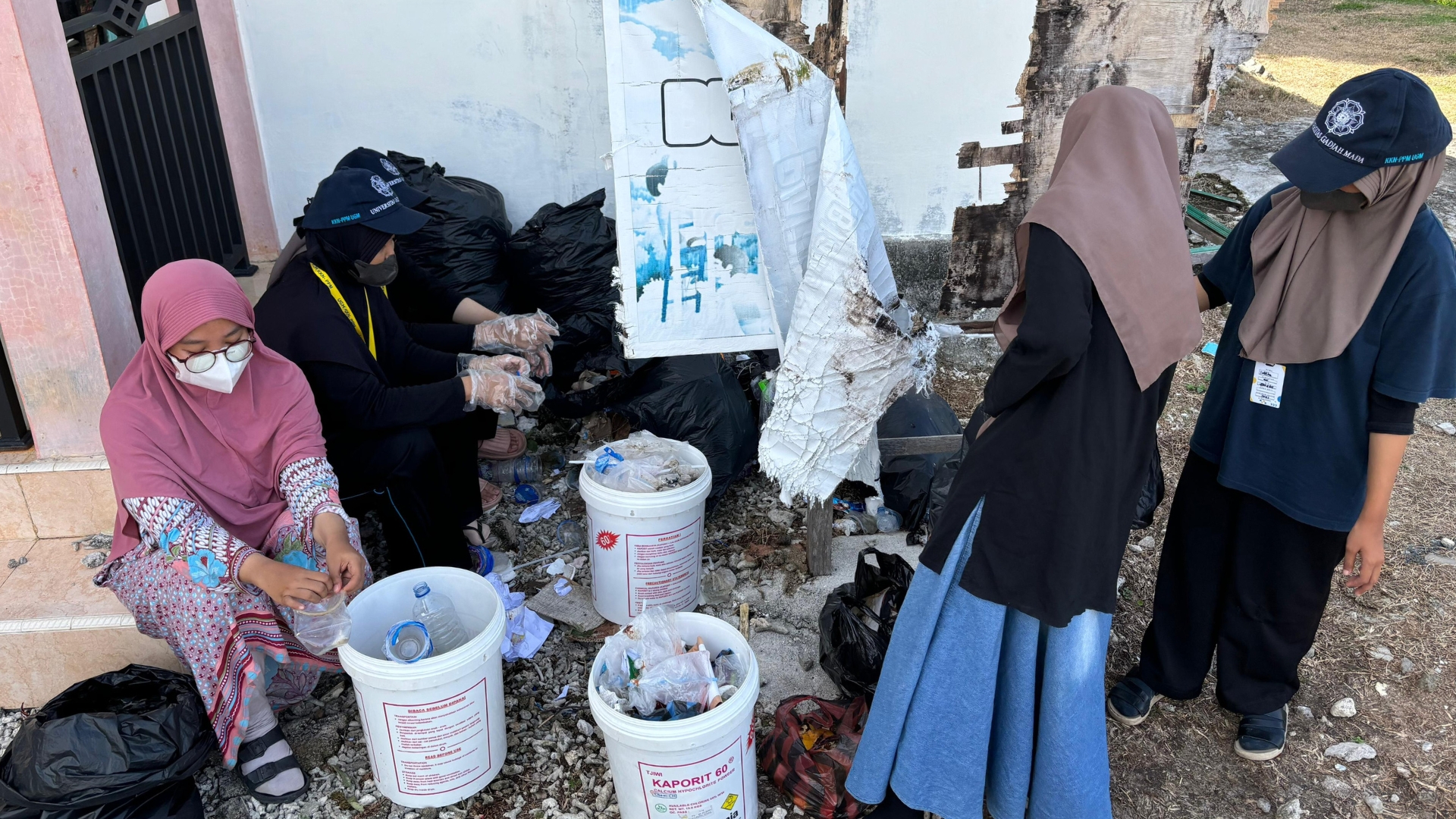
Young girls in Indonesia sort plastic waste to clean-up their community.